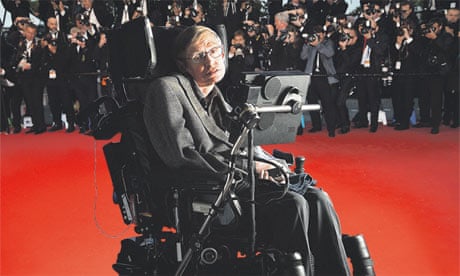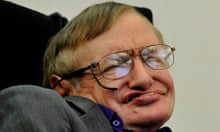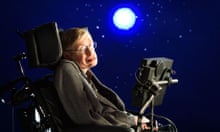Our celebrity culture rarely goes long unbemoaned: earlier this summer, Sofia Coppola's The Bling Ring prompted another round of handwringing. According to the disgruntled, it was absurd that the likes of Paris Hilton should be famous. It was even more absurd that people should steal celebrities' knickers, and in doing so achieve notoriety of their own. Making a film about the ninnies involved was still more lamentable, and going to see it was almost as bad.
All the same, even those most aghast seemed unsurprised: no one can deny that obsession with stardom is rampant. Research has suggested that around 40% of adults expect to enjoy their 15 minutes of fame in some guise or other. Many more are enthralled by those who achieve this goal, often immoderately.
Psychologists at the University of Leicester found that 36% of a sample of 600 adults were afflicted to some degree by what was termed "celebrity-worship syndrome". The most extreme sufferers believed that the object of their ardour knew them, and declared themselves ready to die for their hero.
Thus, celebrity culture has been branded the defining disease of our age, ravaging what remains of our civilisation. New media are seen as rendering the plague terminal, as we spend ever more of our lives reading Stephen Fry's tweets and perusing cellulite on the Mail Online's "sidebar of shame".
If only people could attend instead to something that really mattered: they'd soon forget their foolish fondness for fame. Something, perhaps, like the workings of the universe?
Stephen Hawking has actually spent most of his life addressing the conundrums of the cosmos. A forthcoming documentary, Hawking, enables him to tell his story in his own words. It reveals that the great man has indeed relished probing the limits of knowledge; but what really seems to excite him is the applause he has elicited from the rabble.
Neither the film nor its protagonist seem anxious to waste much time on explaining the hero's discoveries. Instead, as Hawking turns his life into an imposingly epic narrative, we see him drinking in the adulation in thronged lecture halls, and pursuing bizarre opportunities to bathe in the limelight. We watch him playing along with imbecile chatshow hosts and inflicting on their audiences grotesque attempts at jokey banter. The impression left is that it's fun to prove that nothing existed before the big bang; however, making the Guinness Book of Records for authoring the world's longest enduring bestseller is yet more gratifying.
Hawking even suggests that his embrace of his then new-found fame caused the breakup of his first marriage. In the film, his first wife, Jane, says he became "the public wunderkind". The couple "were engulfed and then swept away by a wave of fame and fortune. It got rather too much for me to cope with."
The professor deserves points for owning up to his foible, but his scope for denial was perhaps limited. After all, Hawking has played himself on Star Trek. He has rescued Lisa Simpson from peril in Springfield, and threatened to steal Homer's theory that the universe is doughnut-shaped. He has starred with Jim Carrey in a TV skit, guested on sitcom The Big Bang Theory and appeared regularly on a short-lived show called TV Offal. In Futurama he voiced his own head in a jar.
Less candid telly-dons claim they seek mass exposure only to enlighten the benighted; however, their jealous common-room peers rarely seem convinced. So the love of fame cannot be dismissed as the sole preserve of the witless. Nor is it a fever of our era alone, still less a product of new modes of communication.
Even in the middle ages, Thomas Becket could become an idol across Europe without the benefit of social media: mere word of mouth was enough to generate a vast pilgrimage industry. Technology did indeed expand the ambit of fame, but printing, engraving, photography and the mass media of the 19th and 20th centuries played a bigger role than our own digital gadgetry.
Disapproval of celebrity is no novelty either. By 1637, when Milton called fame "that last infirmity of noble mind", the same sentiment had already been voiced by Tacitus, St Augustine and Montaigne.
Nowadays, even the movies are prepared to join the chorus of disparagement, in spite of the sustenance they derive from celebrity. The Bling Ring's attitude to its subject matter may have been equivocal, but documentaries such as Starsuckers and Videocracy have been harshly censorious, while qualms have pervaded more illustrious titles ranging from Sunset Boulevard, La Dolce Vita and The King of Comedy to Bye Bye Birdie, To Die For and Being John Malkovich.
Cinema's stars, too, sometimes affect disdain for their own lofty status. Press intrusion, they imply, is awful; promoting their films is a burden. Nonetheless, most of them eagerly grasp the trappings of fame, from money to power, sex and the best restaurant tables. There may be the occasional reclusive Greta Garbo; but there seem to be many more like Katharine Hepburn, who once remarked: "I didn't have any desire to be an actress or to learn how to act. I just wanted to be famous."
Just what is supposed to be wrong with the pursuit of fame is not always made clear. Plato disapproved of competition for praise on the grounds that it would tempt the great to bend to the will of the crowd. It is hard to argue with that, and social degradation remains a fear. Says the novelist Will Self: "A culture that privileges notoriety above other human attributes – talent, power, beauty et al – is one in which expertise of any sort has been replaced by a perverse cult of the amateur."
Some seem to believe it is vital for human beings to create their own essence: depending on others' approval will only lead to disaster. "Fame enslaves the gods and men," according to Heraclitus, and contemporary studies have found that subjects motivated by praise and recognition experience lower wellbeing than those pursuing internally derived goals.
Those who actually achieve fame are supposedly vulnerable to conditions like "acquired situational narcissism". New York psychiatrist Robert B Millman says this affliction can cause a celebrity to get "so used to everyone looking at him that he stops looking back at them". This may lead to grandiose fantasies, rage and loss of empathy, which can in turn prompt relationship breakdown, addiction and loss of touch with reality.
Fandom is held to be hardly less perilous. A Chinese study found that subjects who idolised celebrities performed less well at work or college and enjoyed lower self-esteem than those who looked up to teachers or relations. Other studies have found higher levels of depression, anxiety, stress and general illness, accompanied by increased rates of addiction and crime.
In view of all this, you might wonder why either stars or fans bother; yet there is an answer. The human condition presents everyone, even intellectual giants such as Hawking, with some harrowing realities. For both the famous and their followers, the celebrity culture can make bearable what otherwise would not be.
Dea
th is the most obvious of these existential predicaments. For the ancients, circumventing it was the main point of fame. "Short is my date, but deathless my renown," as Homer put it. Today, traces of this attitude persist: "Fame! I'm gonna live forever" is the punchline of Fame, the musical. Hawking has certainly been forced to confront his own mortality: the documentary reveals that in 1985 his life-support machine would have been turned off during an illness, but for his first wife's intervention. However, death is no longer our only source of unease.
Kant's characterisation of the individual as a speck of sand in an infinity of time has been amply confirmed, in part by Hawking's own work. For us, steeped as we are in self-love and entitlement, insignificance seems to have become insufferable. Today, for many, to be a nonentity is to be a non-entity.
Fame may not eliminate the bleakness of an uncaring cosmos, but it can mitigate its impact. Becoming an acolyte of the elect also seems to help: devotion earns you a share of your hero's aura. Better surely to find succour in this way than to turn instead to terrorism, serial murder or internet trolling.
We also seem desperate to relieve the loneliness of Hawking's universe. Personal relationships are difficult, yet stars whose narcissism dooms their marriages can bask in the unconditional adulation of their following; the latter in turn enjoy "parasocial interaction" with gorgeous pseudo-chums without fear of rejection or betrayal.
Tod
ay, many of us know more about the lives of stars than about those of our relations or friends. The extended family may have withered and community life may have waned; yet we can share the successes and reverses of the famous, and hear them talk back to us on Twitter. If we want to, we can revel in their misfortunes and laugh at them behind their backs, in a way that real-life intimacy does not permit. At sites such as The Ghoul Pool, we can even bet on when they will die.
Such behaviour is condemned as detrimental, but research has shown that keeping up with celebrity news helps teenagers become more independent from their parents and makes them more popular. Psychologist John Maltby of Leicester University, who specialises in social influences on individuals, believes young people can benefit from becoming fans of the same stars. "Sharing facts and gossip brings groups together and helps them bond," he says. "It's part of the normal functioning of society."
Chris Rojek, the professor of sociology at City University and the author of Fame Attack, thinks it is not only the young who gain. "Celebrities are informal life coaches. By watching them, people learn how to groom, learn how to wear their hair, learn what to say, learn what opinions are sexy, learn what's right-on and not right-on. They're assimilating all sorts of life-skills." Since such education is widely shared, it can function as a "social adhesive".
Perhaps, as some suggest, celebrity is becoming our religion. It has its rituals, like red carpet appearances, its relics, like David Beckham T-shirts, and its festivals, like fan conventions. High priests such as James Dean, Che Guevara, Bob Marley and Marilyn Monroe are canonised after death. Yet if we need some kind of religion to lend transcendence to our lives, we could choose worse than this one, which generates less guilt, cant or strife than most of the more conventional alternatives.
In this communion, the likes of Paris Hilton are not the only kind of pastor. "Nelson Mandela is a celebrity," points out Rojek, "and his influence is pretty positive." Claire Fox, the director of the Institute of Ideas, has her doubts about the celebrity culture, but says: "It's certainly reasonable that someone like Hawking should become a celebrity, because of his important contribution to society."
Quasi-religious icons can use their divinity to worthy effect. Rojek believes that "celebrity advocacy" can be beneficial, even as practised by controversial figures such as Angelina Jolie: "She publicises very effectively the issues in developing countries," he suggests. An American study found that 80% of its sample had discussed the political views of celebrities with friends.
James Bennett, who is Reader in Television Culture at Royal Holloway and one of the editors of Celebrity Studies, acknowledges the negative side of the fame game, but believes it should no longer be simply reviled. He says: "Making more deliberative judgments in how we value, respond, and act on celebrity seems increasingly important."
We have learned much from Stephen Hawking about our universe. Now, perhaps, we can learn from him something important about ourselves.
Hawking is released in the UK on 20 September. Stephen Hawking will be participating in a live Q&A at the opening night of HAWKING at the Cambridge Film Festival on 19th September.










Comments (…)
Sign in or create your Guardian account to join the discussion